Climate blog
Scientists from Utrecht University are reporting in the climate blog of the NRC on their research in the field of sustainability. They are united around the strategic theme Pathways to Sustainability.
The researchers' contributions to the blog were celebrated with the UU Publi Prize for team achievements.

Multiple countries have already criminalised ecocide; the Netherlands cannot stay behind
Illegal logging, serious pollution and other forms of large-scale destruction of nature belong in international criminal law and perpetrators should be prosecuted, Cedric Ryngaert and Daan van Uhm believe.

Students must be prepared for the climate crisis, the greatest challenge of our time
It is important for climate change to become a structural part of the curriculum in our schools. Honest information transfer, action orientation and the creation of hope all go hand in hand, say Andrik Becht, Elma Blom and Sander Thomaes.

As water becomes scarce, its quality often deteriorates
Drought and heatwaves result in severe economic losses. To reduce water scarcity, hydrologist Michelle van Vliet argues for a better understanding of the interplay between water use and water quality.

The limits of the Netherlands’ water system have been reached
Long-term drought, severe storms, and rising sea levels. Without a clear policy, we will eventually find ourselves surrounded by water, without a drop to drink, explain Maarten Kleinhans, Esther Stouthamer and Niko Wanders.

Researching a technofix for the climate is dangerous. Or maybe it’s essential?
Geoengineering It may be that we can counteract global warming with radical technological measures. But is it responsible to try? That’s the question.

Effectiveness should not be a criterion in climate lawsuits
Companies are sued over inadequate climate plans more and more often. According to critics, these kind of cases miss the mark quite often; they think judges should use an effectiveness requirement. According to Elbert de Jong, that is not a good idea.

Can the quest to save nature find its guiding star?
An agreement has been reached at the COP summit in Montreal. But the real question, according to Harriet Bulkeley is whether this provides enough direction for the kinds of transformative change we need.

Prevent new climate plans from actually leading to more pollution
Plans devised for new policies at the climate summit in Egypt should first be examined for risky 'side effects', researchers Pien Barnas and Rak Kim argue.

Biodiversity is crucial to cope with climate change
The conference on biodiversity in the Chinese city of Kunming has been postponed by Covid-19. This is worrying, thinks Merel Soons, because time is running out for nature conservation.

In the Rotterdam harbour, we are at risk of dredging our own graves
The consequences of further and further deepening waterways in the harbour of Rotterdam are bigger than those of rising sea levels for the time being, geographer Jana Cox argues.

A carbon budget can be spent only once too
The immense challenge countries are facing in Glasgow is the consequence of postponing climate policy for years. We cannot continue to put problems ahead of us, Oreane Edelenbosch and Detlef van Vuuren argue.

Climate policy requires a new relationship with citizens
Climate change is becoming more tangible. Only if government, civilians and science collaborate better, can we adapt in time, Marjolijn Haasnoot, Jeroen Aerts and others write.

Manipulation of the climate – start getting used to it
In the fight against climate change, people look hopefully at technological solutions more and more often. But the debate about it is dangerously superficial, researcher Jeroen Oomen believes.

Sailing blindly on the IPCC's solutions undermines real change
The IPCC relies too much on politically desirable scenarios. That can pose a threat to ambitious climate policies, argue Lisette van Beek and Jeroen Oomen.

Building for eternity can't be done in vulnerable places
Spatial planning is increasingly determined by climate change. If it were up to Peter Pelzer, the same should apply to temporary planning.

Young climate activists aren't always consistent. So what?
Young people might choose to grab a hamburger at McDonalds after attending a climate rally. While some might find this hypocritical, Sander Thomaes feels such criticism is disingenuous.

Adapting to climate change will take time, so we need to hurry up
Climate adaptation. We have the ability to adapt, as researcher Marjolijn Haasnoot explains. However, we have no time to lose.

Responsibility for CO2 emissions does not end at the national border
The Dutch climate policy only covers greenhouse gas emissions in our own country. But is this actually right, wonders Birka Wicke.
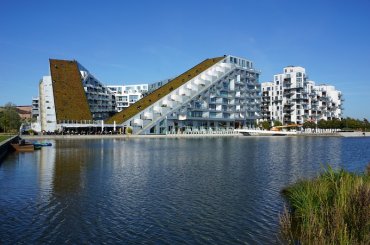
Urban nature pays dividends
Helen Toxopeus advocates for more nature in our cities, since it is both cost-efficient and sustainable.

The Netherlands must improve its groundwater management
Niko Wanders says we must learn to embrace surface water and groundwater, since the Netherlands fases more frequent water shortages in summertime.

In the climate debate, the courts can act as conservators for the next generation
Laura Henderson emphasises that overseeing climate policy is a task for the court system, even though some politicians claim such judicial interference is undemocratic.

Let's clear the air
Roel Vermeulen asks himself whether there is a relation between bad air quality and the corona virus.

The Pliocene is the Wuhan of the climate crisis
Peter Bijl is struck by the parallels between the corona and climate crises: "For the climate crisis, 100% of the required information has long been available."
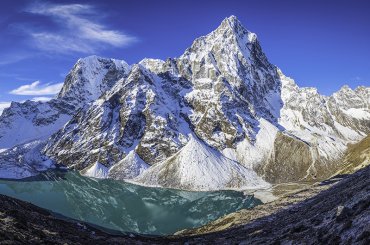
High time to step up the protection of our glaciers
Walter Immerzeel argues that the protection of water towers should be much higher on the agenda.

All species can go extinct – and so can humans
Researcher Wytske Versteeg argues that we are just as vulnerable as every other animal and plant species.

No sea too high
Melting of the ice in Antarctica is an emergency signal provided by nature, says Roderik van de Wal

Sustainable energy alone does not make the EU a climate leader
European climate policy should also focus on scaling down the use of coal, argue Gert Jan Kramer, Herman Lelieveldt and Gerrit Rentier.

Artificial cooling is heating up the debate
The lacklustre political response to the climate crisis is fuelling the call for resolute technological interventions, observes Jeroen Oomen.

More and more dead zones in the oceans
Due to our current lifestyle, life in the oceans is jeopardised by a decline in oxygen and recovery is slow, according to Caroline slomp.

The EU’s green power politics
The EU is pressuring other countries to follow their green measures. According to Natalie Dobson this pushes up against the limits of the law.

Climate change is also a health risk
A greater focus on the public health consequences of climate change could increase the urgency of climate policy, according to Guus Velders.

What’s keeping the application of our vast innovative knowledge?
Many innovative solutions to climate change are not put to use because we do not know how to apply them properly.
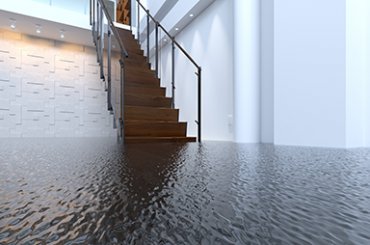
Climate change might see our savings dwindle
Banks and pension funds are still not taking sufficient account of the risks of climate change, writes Mark Sanders.
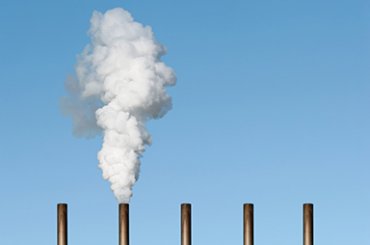
No one is entitled to more greenhouse gas emissions
Climate change is also a matter of ethics, argues Ingrid Robeyns.

The question is not if the Netherlands will disappear below sea level, but when
From now on, let’s only build no-regret waterworks, argues Peter Kuipers Munneke.

The fight against plastic soup needs its own 'climate panel'
We need to act very soon against the plastic debris in the ocean. But not without scientific evidence, argues Erik van Sebille.

Should climate scientists exaggerate?
Scientists are often enraged at the quality of the public debate, Appy Sluijs writes. But that debate is about more than just facts.
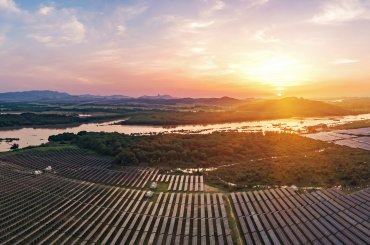
Come out of the laboratory and work on the good life
Engineers should not only be studying the climate, they also have a duty to work with sociologists in identifying ways to implement their recommendations, writes Maarten Hajer.



































